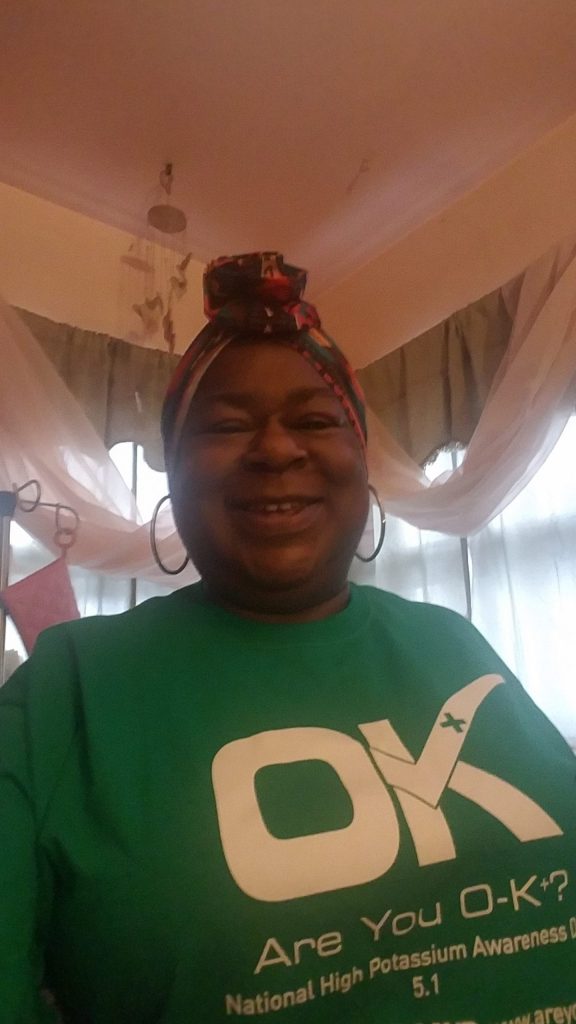Patient Story: Dawn Edwards, AAKP Ambassador
AAKP Ambassador, Dawn Edwards is no stranger to the implications of high potassium when it comes to kidney disease. For the majority of her 29-year battle with kidney disease, she did not pay much mind to her diet and how it affected her body. Now, after a few eye-opening experiences, she wants everyone to be aware of those effects and be cautious when preparing their meals.
After being on dialysis for years and receiving a kidney transplant that then rejected, she found herself struggling with her mental health. She described the experience as being violent and difficult. Dawn believes “it is a conscious choice for patients to want to feel well.” However, she notes that this can be difficult, as many kidney patients, like herself, experience issues like depression.
Dawn started receiving home hemodialysis in 2011, a year after her kidney transplant rejected, when she fell into a state of depression and was diagnosed with clinical anxiety. Because of this, she stopped dialysis, causing her potassium levels to rise so high that she was paralyzed, and paramedics had to rescue her. After this scare, Dawn made it a priority to maintain healthy potassium levels, so she switched to a plant-based diet (more vegetables and less meat) and began working with a nephrologist to take Veltassa on non-dialysis days. Although she has experienced a few episodes of high potassium since, she has been doing a lot better at keeping her levels balanced.
Dawn urges kidney patients to “never stop dialysis. Stopping dialysis can have many fatal consequences like high potassium levels. Potassium is directly related to the heart functioning and should be kept in the forefront of patients minds.”
Right now, when many people are limited food options, it is especially important for kidney patients to stick to their kidney diets and really be mindful what is consumed. Dawn wants patients to know, “You are so much in control of how you feel. It is very much controlled by what you put into your mouth.”

Learn more about National High Potassium Awareness Day at www.areyouok.org
Follow us on Twitter @areyouok5point1 and Facebook @areyouok5point1


















